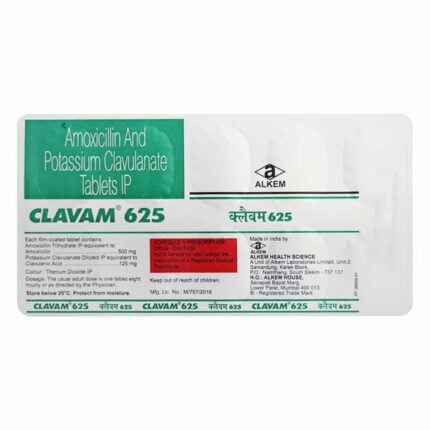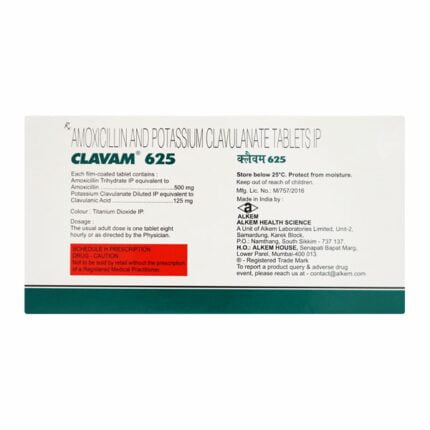PRODUCT INTRODUCTION
Bactrim Syrup is a combination medicine that is used to treat various types of bacterial infections such as pneumonia, bronchitis, infections of the urinary tract, ear, and abdomen. It prevents the growth of microorganisms to cure the infection.
Bactrim Syrup is a prescription medicine that is advised to be taken as suggested by the doctor. It should be taken with food and it must be taken at a fixed time to ensure better efficacy. Do not consume more than the recommended dose, as an overdose of it may have harmful effects on your body. If you miss a dose, take it as soon as you remember. The treatment must be completed even if you feel better to ensure a complete recovery.
Bactrim Syrup may lead to some side effects such as nausea, vomiting, stomach pain, loss of appetite, headache, etc. To overcome any such side effects, it is advised to eat a healthy balanced diet and drink plenty of fluid. If any of the side effects get aggravated, contact your doctor immediately. If you experience any allergic reaction (rashes, itching, swelling, shortness of breath, etc.), you must consult your doctor immediately.
Before taking this medicine, you should tell your doctor if you have any problems with your liver or kidneys. Also, tell your doctor if you are on any medication for any health condition. Pregnant or breastfeeding women should also consult with the doctor before taking it. Avoid drinking alcohol as it can cause excessive dizziness with this medicine. It usually does not impair your ability to drive, but you should not drive if it makes you feel sleepy or dizzy. If you are a known allergic to the medicine, you must refrain from using this medicine and consult your doctor. It is advised to take proper rest during the course of treatment for the medicine to work effectively
USES OF BACTRIM SYRUP
- Treatment of Bacterial infections
SIDE EFFECTS OF BACTRIM SYRUP
Common side effects of Bactrim
- Nausea
- Vomiting
- Increased potassium level in blood
- Candida overgrowth
- Headache
- Rash
- Diarrhea
- Decreased appetite
- Red spots or bumps


















